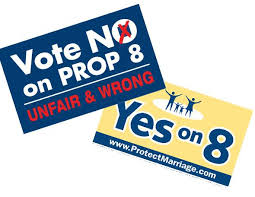
The opinion states that the doctrine of standing “serves to prevent the judicial process from being used to usurp the powers of the political branches.” The high court went on to say that the individuals who brought the matter to them had no direct stake in the outcome of their appeal in that the lower federal court had not ordered them to do or refrain from doing anything. In order to be able to seek relief in federal court, the opinion states, a person must be injured in a personal and individual way. But the persons seeking relief in the case, the opinion continues, have no personal stake in defending the enforcement of Proposition 8 that is distinguishable from the general interest of every citizen of California.
The high court brushed aside the argument that the California Supreme Court determined the proponents of Proposition 8 were authorized to defend it. The United States Supreme Court said this “does not mean that the proponents become de facto public officials.” Rather, the proponents may argue in court and participate in proceedings, but those rights merely underscore that their interest is generalized only, and that they have no standing to assert their interest in the United States Supreme Court.
Note that when the case was winding its way through the federal courts, the Ninth Circuit certified a question to the California Supreme Court, and in Perry v. Brown (2011) 52 Cal.4th 1116, [265 P.3d 1002; 134 Cal.Rptr.3d 499], the California Supreme Court answered the question of the federal appeals court. The California court said the initiative process is specifically intended to enable the people to amend the state Constitution or to enact statutes when government officials have declined to do so. Thus, the court said, the voters who have successfully adopted an initiative measure may reasonably harbor a legitimate concern that the public officials who ordinarily defend a challenged state law in court may not, in the case of an initiative measure, always undertake such a defense with vigor. As a consequence, the court stated, California courts have routinely permitted the official proponents of an initiative to intervene and defend a challenged voter-approved initiative measure in order to guard the people’s right to exercise initiative power.
In the dissent of the current opinion of the United States Supreme Court, written by Justice Kennedy and joined by Justices Thomas, Alito and Sotomayor, Kennedy states: “The Court’s reasoning does not take into account the fundamental principles or the practical dynamics of the initiative system in California, which uses this mechanism to control and to bypass public officials—the same officials who would not defend the initiative, an injury the Court now leaves unremedied.” Hollingsworth v. Perry (U.S. Sup. Ct.; June 26, 2013) 133 S.Ct. 2652, [186 L.Ed.2d 768].
Leave a Reply
You must be logged in to post a comment.